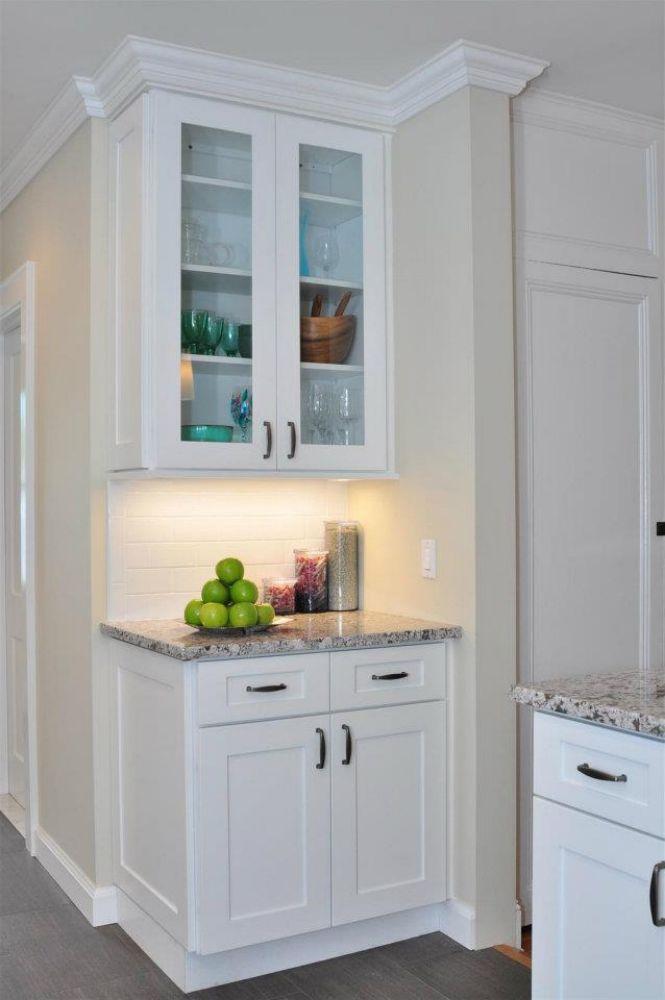How do Forevermark Cabinets compare in weight to other wood cabinets?
Weight Comparison: Forevermark Cabinets vs. Other Wood Cabinetry
When choosing new kitchen cabinets, homeowners often focus on style, color, and price — but weight is an important factor that is sometimes overlooked. Cabinet weight affects everything from ease of installation to structural durability and long-term performance. For anyone considering Forevermark Cabinets, it’s natural to wonder how they compare in weight to other types of wood cabinetry on the market.
This article will explore the construction details that determine cabinet weight, how Forevermark measures up against different wood options, and what the implications are for installation, transportation, and everyday use.
Why Cabinet Weight Matters
Cabinet weight influences several practical aspects of your kitchen remodel:
-
Ease of installation — Lighter cabinets can be easier to lift and position.
-
Structural support requirements — Heavier cabinets may require additional wall reinforcement.
-
Durability and stability — A certain amount of weight often indicates stronger materials.
-
Shipping and handling costs — Heavier cabinets may be more expensive to transport.
Understanding weight differences can help you balance convenience with strength.
Construction Materials Used in Forevermark Cabinets
Forevermark Cabinets achieve a balance between durability and manageable weight by using a combination of:
-
Solid wood door frames — typically made from hardwood species like birch or maple.
-
High-grade plywood box construction — offering strength without the bulk of solid wood panels.
-
Medium-density fiberboard (MDF) or hardwood veneer for some center panels — keeping weight lower without sacrificing appearance.
This combination results in a cabinet that is sturdy yet lighter than many all-solid-wood designs.
Average Weight of Forevermark Cabinets
While cabinet weight varies depending on size and configuration, the average Forevermark wall cabinet weighs approximately 25–50 pounds, and base cabinets generally range from 60–90 pounds when unassembled. Pre-assembled versions can weigh more due to added fasteners and adhesives.
Comparing to Solid Hardwood Cabinets
All-solid-wood cabinets — such as those made entirely from oak, maple, or cherry — tend to be heavier:
-
Wall cabinets: Often 40–70 pounds each.
-
Base cabinets: Can exceed 100–120 pounds depending on size.
These cabinets may offer unmatched durability but can be more challenging to install and handle, especially for DIY remodelers.
Comparing to Particleboard Cabinets
At the other end of the spectrum, budget cabinets made with particleboard boxes are generally lighter:
-
Wall cabinets: 15–35 pounds.
-
Base cabinets: 45–75 pounds.
While particleboard cabinets are easier to lift and maneuver, they are less resistant to moisture and may sag or warp more quickly under heavy loads compared to Forevermark’s plywood construction.
How Plywood Construction Impacts Weight
Plywood offers one of the best strength-to-weight ratios in cabinetry. Forevermark’s use of plywood for box construction means:
-
The cabinets remain structurally strong while being lighter than all-solid-wood models.
-
They resist warping and swelling better than particleboard.
-
They maintain stability for decades without excessive bulk.
This makes them a practical choice for both professional installers and homeowners.
Impact of Cabinet Size on Weight
Cabinet weight is directly related to its dimensions:
-
Small wall cabinets (12–18 inches wide) are relatively easy to handle.
-
Large pantry cabinets can weigh over 150 pounds assembled.
-
Corner base cabinets are heavier due to their size and additional materials.
Forevermark’s modular design allows for mixing cabinet sizes to achieve the desired layout without creating installation difficulties.
Effect of Finish on Cabinet Weight
Finishes add minimal but measurable weight to cabinetry. Forevermark uses:
-
Low-VOC paints and stains — environmentally friendly and lightweight.
-
Protective clear coats — adding a thin, durable layer without significant weight increase.
These coatings provide long-lasting protection without making the cabinets cumbersome.
Installation Advantages of Forevermark Weight
Because Forevermark Cabinets are lighter than many all-solid-wood options, they:
-
Require fewer installers for most standard sizes.
-
Can be installed more quickly, reducing labor costs.
-
Are easier to adjust during installation for perfect alignment.
Shipping and Delivery Benefits
The moderate weight of Forevermark Cabinets translates to:
-
Lower shipping costs compared to heavier hardwood cabinets.
-
Reduced risk of damage during transport, as lighter cabinets are easier to handle carefully.
-
Simpler home delivery — especially important for multi-story homes or tight spaces.
Durability Despite Lighter Weight
A common misconception is that lighter cabinets are less durable. Forevermark’s construction disproves this by offering:
-
Reinforced joinery, including dovetail drawers.
-
Thick plywood sides and backs for structural integrity.
-
Long-lasting finishes that protect the wood underneath.
Weight Considerations for Wall Support
When installing wall cabinets, it’s important to ensure the wall and fasteners can support the load. Forevermark’s lighter weight reduces the stress on:
-
Wall studs.
-
Anchors and screws.
-
Hanging rails.
This is especially beneficial in older homes where wall strength may be a concern.
Comparing Forevermark Weight to Custom Cabinets
Custom cabinetry varies widely in weight depending on material choice:
-
Solid hardwood customs — often heavier than Forevermark.
-
Plywood customs — comparable in weight.
-
MDF customs — sometimes heavier than Forevermark due to material density.
Forevermark offers the advantage of standardized construction and weight consistency across styles.
Ease of Handling for DIY Installations
For homeowners tackling a DIY remodel, cabinet weight can make a big difference. Forevermark Cabinets are:
-
Light enough for two people to lift most units comfortably.
-
Easy to maneuver through doorways and tight corners.
-
Manageable even without professional lifting equipment.
Impact of Assembly on Final Weight
Ready-to-Assemble (RTA) Forevermark Cabinets arrive in flat packs, reducing shipping weight and making transport easier. Once assembled:
-
The cabinets gain additional stability from fasteners and glue.
-
Weight increases slightly, but remains manageable compared to solid hardwood.
Balancing Weight with Kitchen Functionality
Choosing cabinets involves finding the right balance:
-
Too heavy — harder to install, more expensive to ship, and may require reinforced walls.
-
Too light — may compromise durability and longevity.
Forevermark achieves a sweet spot, offering strong yet reasonably weighted cabinets.
Environmental Considerations and Weight
Forevermark’s CARB2 compliance means their materials are environmentally responsible. Lighter cabinets also contribute to lower transportation emissions because less fuel is needed for shipping compared to heavier all-wood alternatives.
Longevity and Performance Over Time
Despite being lighter than solid hardwood, Forevermark Cabinets maintain performance over decades because:
-
Plywood resists warping.
-
Joints are reinforced for strength.
-
Finishes protect against moisture and wear.
When Heavier Cabinets Might Be Preferred
In certain cases, heavier cabinets might be desirable:
-
High-end luxury kitchens wanting all-solid-wood prestige.
-
Historic restorations where traditional materials are essential.
-
Specialty builds requiring extra weight for stability.
However, for most homeowners, Forevermark’s weight offers the ideal balance between strength and manageability.
Conclusion: A Well-Balanced Cabinet Weight Choice
When comparing Forevermark Cabinets to other wood cabinet options, they strike an ideal balance between strength, durability, and ease of handling. They are lighter than most solid hardwood cabinets, making them easier to install and transport, but heavier and sturdier than particleboard alternatives, ensuring long-term performance.
For homeowners and installers alike, this weight balance translates into smoother installations, lower shipping costs, and kitchens that remain functional and beautiful for decades.
FAQs
1. Are Forevermark Cabinets lighter than solid wood cabinets?
Yes, Forevermark Cabinets are generally lighter because they use plywood construction instead of all-solid-wood panels.
2. Do lighter cabinets mean lower quality?
Not necessarily. Forevermark balances lighter weight with strong materials and construction techniques, ensuring durability.
3. How much does a Forevermark wall cabinet weigh?
Most Forevermark wall cabinets weigh between 25–50 pounds, depending on size and configuration.
4. Are Forevermark Cabinets heavier than particleboard cabinets?
Yes, they are typically heavier and more durable than particleboard cabinets due to plywood construction.
5. Does the weight of Forevermark Cabinets affect shipping costs?
Yes, their moderate weight helps keep shipping costs lower than heavier hardwood cabinets while maintaining strength.
Read: Can Forevermark Cabinets be ordered with integrated lighting features?
Read: What tools are recommended for maintaining Forevermark Cabinets?

